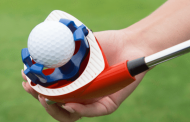The 2016 Ryder Cup is coming up at the end of September and is the biggest golf event of the year for American and European golfers and fans. There always seems to be a different kind of pressure on players during the Ryder Cup, than other major golf events and this may be due to the format being used, which is match play. Today, we have some great tips, which will help you to succeed the next time you are involved in a match play tournament.
Although the saying ‘play the course, not the opponent’ is true, in match play, it’s wise to keep an eye on what your opponent is doing. You only have to be better than your opponent on the hole you are playing. If they hit a wayward shot and are required to take a drop, why take a risk yourself, when you know a par will be enough to win the hole? Manage your game in terms of what you need to do, rather than trying to score the lowest total possible on every hole, regardless of what your opponent is doing. You do not always need to birdie a hole to win it.
Holing the first putt is key to taking control of the match. If you are first off the tee and find the fairway, it places pressure on your opponent to do the same. If you find the green in regulation, it puts pressure on your opponent to do the same. Holing your putt and forcing your opponent to do the same, in order to halve the hole will also take its toll, both mentally and physically and can lead to mistakes.
During the Ryder Cup, you will see player conceding putts to their opponent, when the ball is within around three feet of the hole. However, do not concede all putts, simply because they are within this range. Mix it up and concede those which are flat and straight forward but then make them play those which are downhill or require a good read. If you have conceded a few putts, they may be caught off guard when you ask them to putt and this can often lead to an unexpected miss.
When playing foursomes or four-ball with a partner, do not question their choices during the round. Even if you believe they are taking the wrong club or playing the wrong line, it is better to keep quiet. Your partner wants to feel comfortable and confident in their choices and if you start telling them otherwise, they will start to lose confidence and play poorly as a result. However, if you can see your partner is about to make a big error, then you will need to speak up, just ensure you do it before they are set-up to play the shot.
Match play is as much about psychology as it is about the physical elements of the sport, as we will witness, during what is set to be a tremendous Ryder Cup tournament.






































